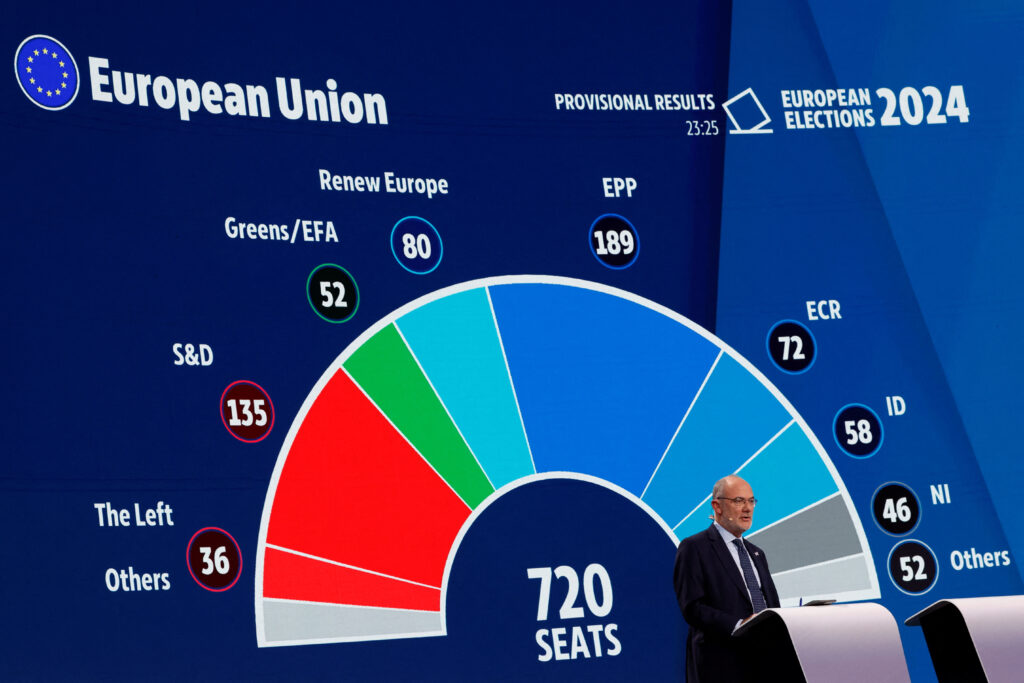Europe is witnessing a political transformation that has left many wondering whether the continent is on the verge of a new ideological era. Across various countries, far-right parties are gaining momentum, reshaping political landscapes that were once dominated by centrist and traditional political forces. From Italy to Sweden, from France to Hungary, nationalist, populist, and right-wing movements are making their presence felt, often with strong anti-immigration, Eurosceptic, and sovereignty-driven agendas.
This shift raises critical questions: Why is the far right rising now? What are the driving forces behind its appeal? And most importantly, what does this mean for the future of Europe and its democratic institutions?
Why Is the Far Right Gaining Ground?
The rise of far-right movements in Europe is not an isolated phenomenon but rather the result of a convergence of economic, social, and political factors that have eroded trust in traditional parties and institutions.
Economic Uncertainty and Inequality
Financial instability has played a significant role in the resurgence of far-right parties. Following the 2008 financial crisis, many European countries experienced prolonged economic stagnation, rising unemployment, and growing income inequality. The middle class, feeling abandoned by mainstream parties, turned to populist leaders who promised economic protectionism, job security, and a return to national economic policies rather than globalized trade agreements.
In Hungary, Viktor Orbán’s government has capitalized on these economic concerns by promoting a model of economic nationalism that prioritizes local industries and businesses over foreign investment, a stance that resonates with many voters disillusioned by globalization.
Immigration and National Identity
One of the most potent drivers of far-right success is the issue of immigration. The 2015 refugee crisis, which saw millions of migrants from the Middle East and Africa seeking asylum in Europe, led to deep societal divisions. Many right-wing parties framed the crisis as a threat to national identity, social stability, and security, successfully rallying support by advocating stricter border controls and tighter immigration laws.
Marine Le Pen’s Rassemblement National (RN) in France and the Sweden Democrats have built their platforms around restricting immigration and protecting what they describe as their nation’s cultural and historical heritage. The rhetoric of “preserving national identity” has found a receptive audience, particularly among voters who feel that rapid demographic changes threaten their way of life.
Dissatisfaction with the European Union
Euroscepticism has been another major factor fueling far-right movements. Many nationalist parties argue that the European Union (EU) imposes excessive regulations on member states, undermining national sovereignty. The Brexit referendum in 2016 was a prime example of this sentiment in action, with Nigel Farage’s UK Independence Party (UKIP) successfully campaigning for Britain’s withdrawal from the EU.
Elsewhere in Europe, parties like Italy’s Fratelli d’Italia and Austria’s Freedom Party (FPÖ) have expressed skepticism toward Brussels, arguing for a looser European alliance or even an outright withdrawal from certain EU agreements. Hungary’s Fidesz party, under Orbán, has repeatedly clashed with EU leadership over issues such as media freedom, judicial independence, and migration policy.
Security Concerns and Populist Rhetoric
In the wake of terrorist attacks across Europe, security has become a key talking point for far-right leaders. Parties like the Dutch Party for Freedom (PVV), led by Geert Wilders, have called for strict surveillance measures, bans on Islamic practices, and the closure of borders to migrants from predominantly Muslim countries. By linking immigration with crime and terrorism, far-right movements have successfully cultivated a sense of fear that drives voters toward their hardline policies.
The Key Players in Europe’s Far-Right Surge
Several figures and parties have emerged as dominant forces in Europe’s shift toward the right:
- France: Marine Le Pen’s Rassemblement National has positioned itself as the leading opposition to President Emmanuel Macron’s government. The party’s nationalist and anti-immigration rhetoric has gained traction, particularly in economically struggling regions.
- Italy: Giorgia Meloni, leader of Fratelli d’Italia, became the country’s first female prime minister in 2022. Her party champions traditional family values, strict immigration policies, and a nationalist economic agenda.
- Hungary: Viktor Orbán’s Fidesz government has been a major proponent of right-wing populism, combining nationalist rhetoric with authoritarian-leaning governance.
- Sweden: The Sweden Democrats, once on the fringes of politics, have become a key player in Swedish governance by supporting a right-wing coalition government.
- Poland: The Law and Justice Party (PiS) has maintained a strong nationalist stance, promoting conservative values while pushing back against EU intervention in Polish domestic affairs.
Is Democracy at Risk?
The rise of the far right has sparked debates over the future of democracy in Europe. Critics argue that many of these parties undermine democratic institutions by attacking independent media, restricting judicial oversight, and centralizing power. Hungary and Poland have both faced scrutiny from the EU for alleged democratic backsliding, with concerns that other countries may follow suit.
However, supporters of these movements argue that they represent a genuine response to the failures of traditional parties and an attempt to restore power to the people. They claim that their policies are a necessary correction to unchecked globalization and liberal elitism.
What Comes Next?
The future of far-right politics in Europe depends on several factors. If economic conditions improve and mainstream parties address public concerns more effectively, support for radical parties may decline. However, if issues like immigration, economic inequality, and EU governance continue to generate discontent, far-right movements are likely to strengthen their hold on European politics.
For now, one thing is certain: the political landscape of Europe is undergoing a profound transformation, and the far right is at the center of it.



